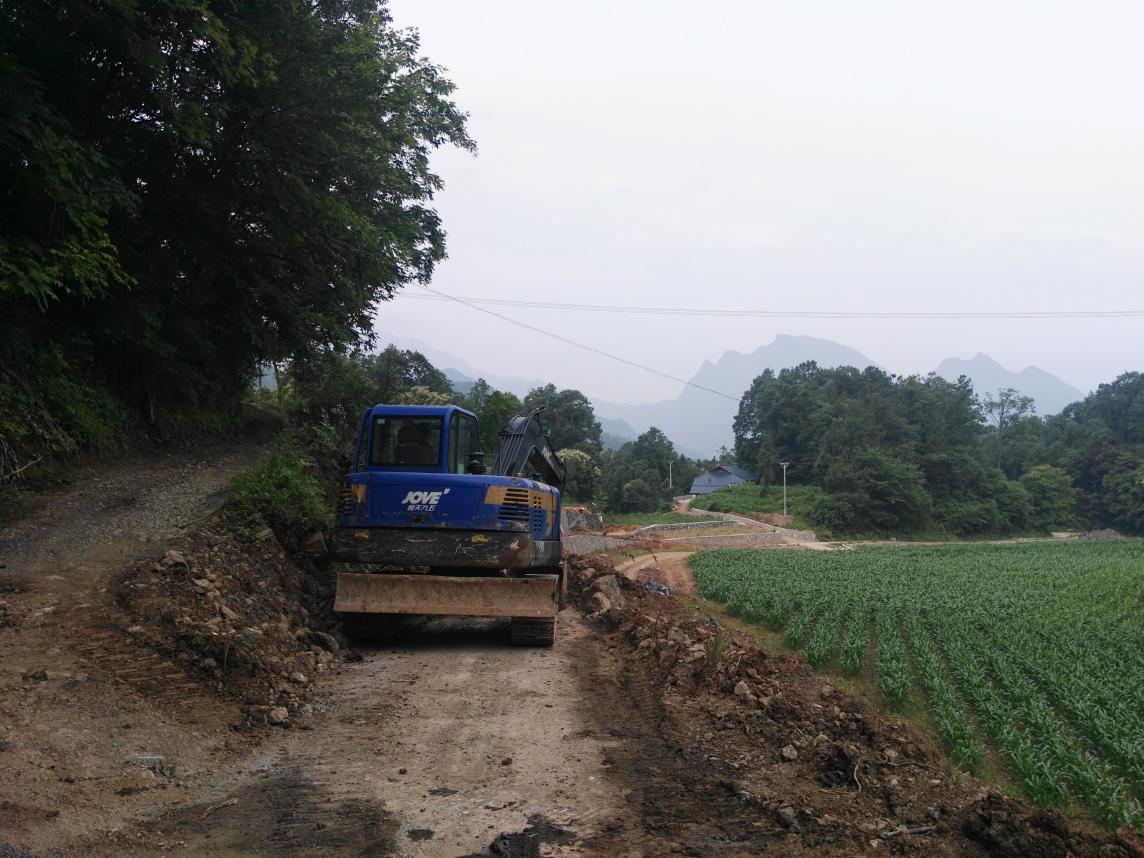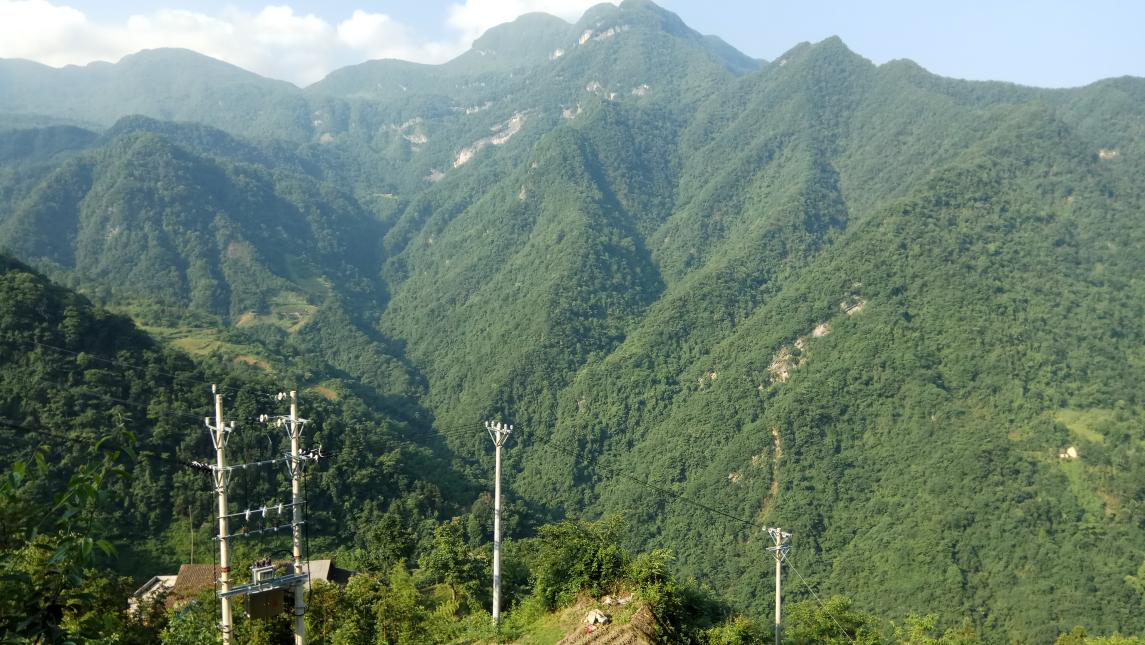 Turning Mountain Resources into Wealth- The Experience of Poverty Eradication through the Tea Industry
A Case Study of Targeted Poverty Alleviation from Puling Village of Hubei Province, China
Turning Mountain Resources into Wealth- The Experience of Poverty Eradication through the Tea Industry
A Case Study of Targeted Poverty Alleviation from Puling Village of Hubei Province, China

Challenges
Economic theory generally believes comparative advantages in market competition would generate profit and reduce poverty. However, it is difficult in practice to turn resources into comparative advantages in market competition or the capital to get rid of poverty. Many impoverished villages in China face the above difficulty.
A study by CASS of an ethnic minority village in the central part of Hubei Province found that the more remote a village is, the better the ecological environment and the higher quality of its tea, yet, at the same time, it is more difficult to sell the tea at a good price. A villager interviewed during the fieldwork said frankly that “it is better to plant corn than tea because corn is food while tea is only a tree leave”. China is the birthplace and hometown of tea, where tea culture has existed for thousands of years. But the poor villagers were unaware that tea could help them to earn money and improve their livelihoods.
The following challenges were identified that are impacting the villagers which include poor infrastructure and lack of market capacity, single industrial structure and difficulty of villagers to earn money from agriculture, inadequate market awareness and potential market risks, the financial constraint for tea planting and technical reserve, low education level of villagers and out-migration of the young labor force, and weak subjective initiative and lack of ideas of industrial development and village governance.
Towards a Solution
Human resources support and guidance: A first Secretary was appointed by the government to lead the establishment of anti-poverty and development concepts for the village, and put forward specific suggestions and help to improve the development capacity of villages and poor people. These government officials live with villagers for about three years and provided guidance on daily production and life. The first secretary of Puling village played an important "bridge" role in village governance, tea industry development, infrastructure construction and other aspects, guiding village residents to work together in the right direction.
Increasing income and gaining skills through professional cooperative organizations: Puling Village attracted investment to build a new large tea factory with local Tea Professional Cooperative taking lead. The company-cooperative-households-internet shareholding model was a significant innovation. Farmers became shareholders based on their land and those with rich professional experiences in tea planting continued to be responsible for planting. The company provided uniformly tea seedling, training and management, service, processing and marketing. Standardized production and intensive management were practiced, forming the “production plus marketing” pattern of integration of agriculture, industry and trade. The agricultural professional cooperative played an active role in this process. It reorganized the scattered tea planting activities of poor villagers, became a carrier that organized and mobilized poor households to be trained technically, and helped enhance the awareness of marketization among local people and their ability to take part in public affairs.
Integrating the overall poverty alleviation policy support to serve the development of the tea industry. For instance, in infrastructure construction, Puling Village integrated the construction of village roads and roads leading to each household and the construction of the roads of industrial bases.
Build the core competitiveness of the tea industry: Large-scale planting was the first step of poverty eradication through the tea industry in Puling Village. That the tea could be sold at a good price and to turn the tea of Puling Village into “golden leaves” was crucial and this could not be realized without the building of the core competitiveness of the tea of Puling Village and the brand management and advocacy. Two measures were taken. The first was to highlight the feature and advantages of tea produced in the village, they have successfully got se-rich quality certification, which became the core competitiveness of local tea in the market. The second was to use enterprise professional marketing strategies for opening the market.
The establishment of the enterprise called Big Puling Nong has achieved the following achievements: on the one hand, Thirty percent of the poor households in the village have found local employment; On the other hand, The income structure of the villagers is more diversified by participating in the operation and production of enterprises. In addition, The optimal price acquisition measures of Big Puling Nong have eliminated farmers' worries about sales problems. Fourth, the income of poor households increased significantly. In 2019, the Big Puling Nong increased the income of each poor household planting tea by about 2,000 yuan(RMB). Under the joint efforts of enterprises, local government and villagers, Big Puling Nong processed more than 50 tons of tea in 2019, tea planting area in the village reached more than 2000000 square meters. All relevant stakeholders have achieved a win-win situation in the development model of "agriculture+science and technology + finance + poverty alleviation".
In the case of Puling Village, other countries or regions can learn from the following experience: First, the government must play an active role in the anti-poverty action and send cadres to villages to play a specific leading and helping role. Second, it is necessary to establish a highly organized production organization with common participation between poor households and non-poor households. Third, infrastructure construction and other service anti-poverty projects should form a virtuous cycle with industrial development projects to lay a foundation for the development of the main industries of the village.
Contact Information
Countries involved
Supported by
Implementing Entities
Project Status
Project Period
Primary SDG
Primary SDG Targets
Secondary SDGs
Secondary SDG Targets
Similar Solutions
| NAME OF SOLUTION | Countries | SDG | Project Status | |
|---|---|---|---|---|
A Billion Brains: Smarter Children, Healthier Economies High Level Meeting on South-South Cooperation for Child Rights |
China | 17 - Partnerships for the Goals | Completed | View Details |
Accessibility of Financial Services and the Private Sector in Africa Maximizing the impact of financial cooperation on economic development and industrialization in Africa |
China | 08 - Decent Work and Economic Growth | Completed | View Details |
ACP Business-friendly Supporting business-friendly and inclusive national and regional policies, and strengthening productive capabilities and value chains |
China | 08 - Decent Work and Economic Growth 17 - Partnerships for the Goals | Ongoing | View Details |
Addressing the Philippine Dairy Sector Challenges Exchanging knowledge between Argentina and the Philippines to improve Philippine local dairy production |
China | 08 - Decent Work and Economic Growth 17 - Partnerships for the Goals | Ongoing | View Details |
Addressing the Transboundary Dimensions of the 2030 Agenda through Regional Economic Cooperation and Integration in Asia and the Pacific Promoting co-deployment of ICT and transport infrastructure corridors in Central Asia region |
China | 09 - Industry, Innovation and Infrastructure 13 - Climate Action 17 - Partnerships for the Goals | Completed | View Details |


